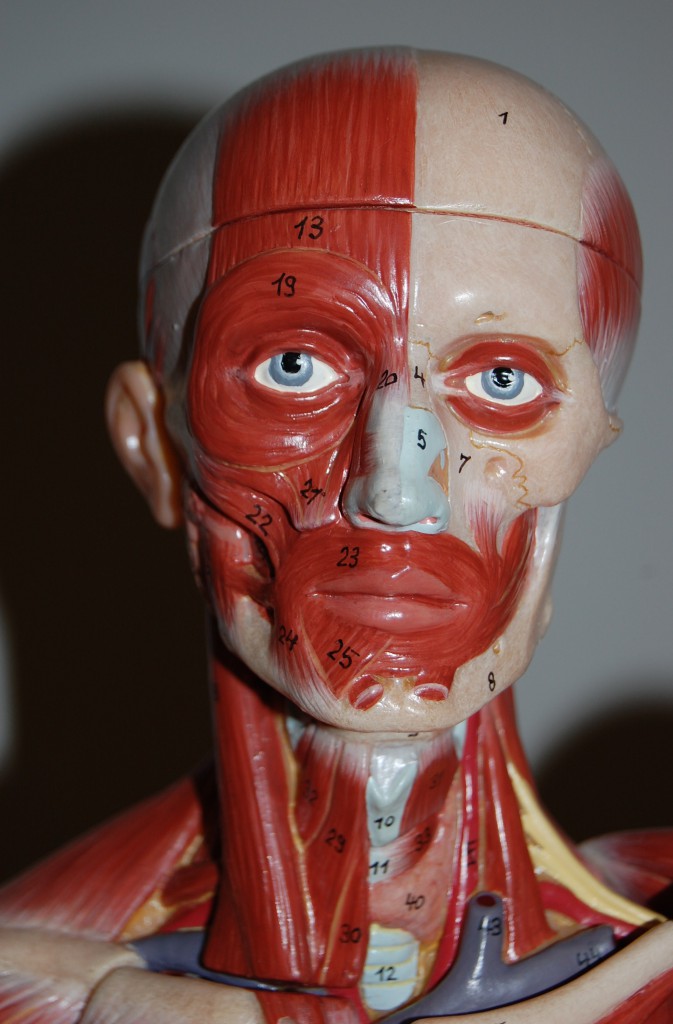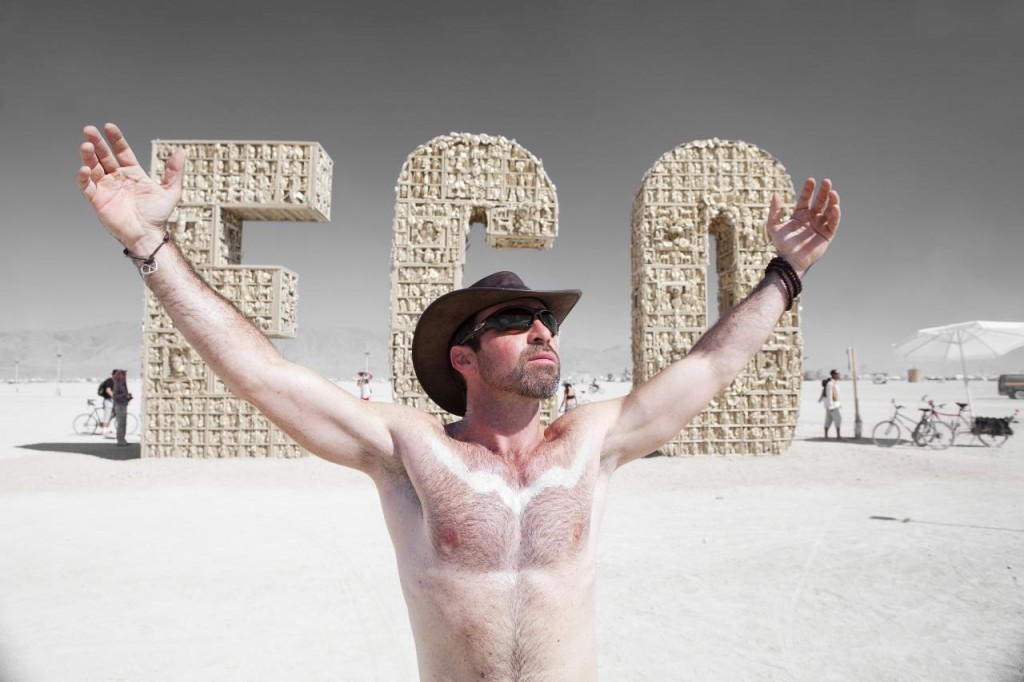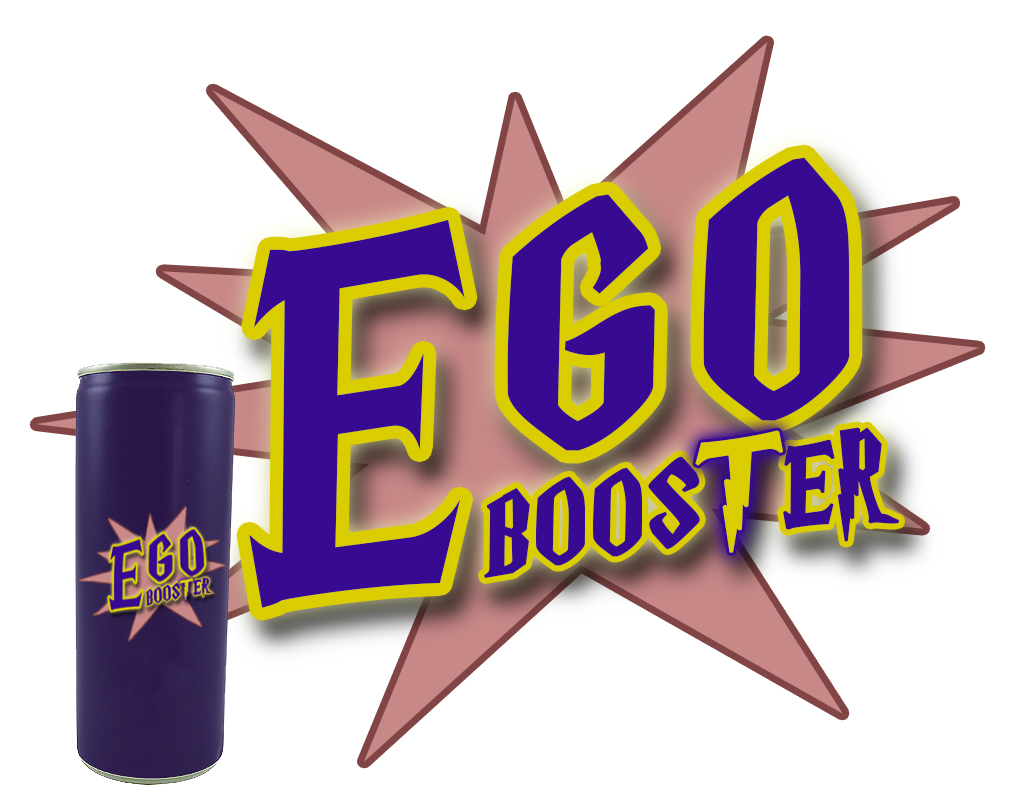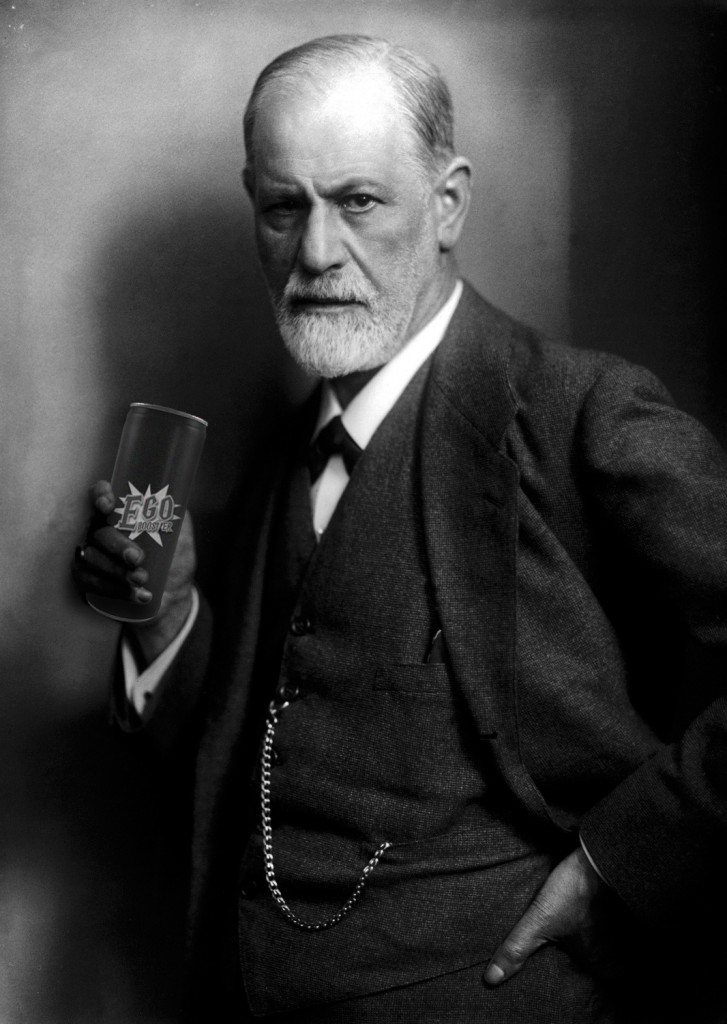Ego depletion is a concept from motivational psychology which proposes that willpower is a finite mental energy (Baumeister, Bratslavsky, Muraven, & Tice, 1998). The ego is thought to function like a muscle (Muraven & Baumeister, 2000) and can enter a state of fatigue and exhaustion through taxing tasks.
When the ego is depleted, self control is impaired, leading to a myriad of terrible consequences: uncontrolled devouring of ice cream (Vohs & Heatherton, 2000), subpar athletic performance (Dorris, Power, & Kenefick, 2012), choosing a chocolate cake over fruit salad (Shiv & Fedorikhin, 1999), sticking needles into voodoo dolls representing a spouse (Bushman, DeWall, Pond, & Hanus, 2014), and even the deterioration of human capabilities that should be resistant to miniscule, temporary influences, such as the IQ (Schmeichel, Vohs, & Baumeister, 2003).

Not in this picture: The most important head muscle, the ego. Hence the disapproving look.
Image credit: Rob Swatski (CC BY-NC)
Similarly, when the “muscle of the mind” rests, its energy replenishes over time. This can be facilitated through the mind-equivalent of a nice massage, such as playing video games (Reinecke, Hartmann, & Eden, 2014) or masturbating (Gailliot & Baumeister, 2007), though not necessarily in that order. While research on ego depletion has recently faced some criticism (see for example Carter, Kofler, Forster, & McCollough, 2015; Xu et al., 2014), this may be itself caused by academic egos depleted from receiving too many rejection letters for failed replications.
Everybody knows that physical exercise can cause low blood sugar – but Gailliot et al. (2007) have discovered that the same mechanism is involved in ego depletion! Expending willpower energy for self-regulation (e.g., through the suppression of racist thoughts) reduces blood glucose levels, subsequently impairing self-control and performance in various tasks. Thus, glucose might be the fuel on which the motor of our ego is running!

A happy man whose ego has been repleted.
Image credit: Christopher Michel (CC BY-NC; derivative)
Psychological research has proven that avoiding ego depletion is pivotal to leading a successful and happy life. A completely charged ego ensures
- functioning at maximum capacities at your workplace
- optimal performance in your love life
- being loved by friends and family
- an elevated mood in the face of any obstacle
- lifelong vitality and health
- equilibrium of body, mind, and soul
In short, a restored ego is the key to intra- and interindividual harmony.
But how to restore and maintain an elevated ego when encountering challenge after challenge? It is literally easy as pie. As the saying goes: When life gives you lemons, make lemonade! Lucky for you, Dr. Dorian Primestein has created a magic lemonade formula just to make your life a little sweeter: The EGO BOOSTER Energy Drink!

The EGO BOOSTER Energy Drink is designed for those who want to take lives back from their depleted egos into their own hands. Athletes, video gamers, candy enthusiasts, celibates, and psychologists dig it – and you will too. It comes with a ego-blasting flavor to electrify your taste buds! Tear into a can of the most reviving energy drink on the planet: EGO BOOSTER. It’s the ideal combo of the right ingredients in the right proportion to deliver the big bad ego boost that only EGO BOOSTER can. EGO BOOSTER helps giving you the ego you need – when you need it. Drink EGO BOOSTER and your ego will turn into a SUPER EGO!
Buy a sixpack of EGO BOOSTER now and never be ego-depleted again.* Order now and receive a free sample of the new ID AMPLIFIER!
* Cheer up, diabetics: Since willpower in people with diabetes is aspartame/stevia-based, the all new sugar-free EGO BOOSTER LITE takes a back seat to nothing! EGO BOOSTER LITE: 100% ego, 0% sugar.

Drinks to his super ego: Sigmund Freud.
References
Baumeister, R. F., Bratslavsky, E., Muraven, M., & Tice, D. M. (1998). Ego depletion: Is the active self a limited resource? Journal of Personality and Social Psychology, 74(5), 1252–1265. doi: 10.1037/0022-3514.74.5.1252 [.pdf]
Bushman, B. J., DeWall, C. N., Pond, R. S., & Hanus, M. D. (2014). Low glucose relates to greater aggression in married couples. Proceedings of the National Academy of Sciences of the United States of America, 111(17), 6254–6257. doi: 10.1073/pnas.1400619111 [.pdf]
Carter, E. C., Kofler, L. M., Forster, D. E., & McCullough, M. E. (2015). A series of meta-analytic tests of the depletion effect: Self-control does not seem to rely on a limited resource. Journal of Experimental Psychology: General, 144(4), 796-815. doi: 10.1037/xge0000083 [.pdf]
Dorris, D. C., Power, D. A., & Kenefick, E. (2012). Investigating the effects of ego depletion on physical exercise routines of athletes. Psychology of Sport and Exercise, 13(2), 118–125. doi: 10.1016/j.psychsport.2011.10.004
Gailliot, M. T., & Baumeister, R. F. (2007). Self-regulation and sexual restraint: Dispositionally and temporarily poor self-regulatory abilities contribute to failures at restraining sexual behavior. Personality & Social Psychology Bulletin, 33(2), 173–186. doi: 10.1177/0146167206293472
Gailliot, M. T., Baumeister, R. F., DeWall, C. N., Maner, J. K., Plant, E. A., Tice, D. M., Brewer, L. E., & Schmeichel, B. J. (2007). Self-control relies on glucose as a limited energy source: Willpower is more than a metaphor. Journal of Personality and Social Psychology, 92(2), 325–336. doi: 10.1037/0022-3514.92.2.325 [.pdf]
Muraven, M., & Baumeister, R. F. (2000). Self-regulation and depletion of limited resources: Does self-control resemble a muscle? Psychological Bulletin, 126(2), 247–259. doi: 10.1037/0033-2909.126.2.247 [.pdf]
Reinecke, L., Hartmann, T., & Eden, A. (2014). The guilty couch potato: The role of ego depletion in reducing recovery through media use. Journal of Communication, 64(4), 569–589. doi: 10.1111/jcom.12107
Schmeichel, B. J., Vohs, K. D., & Baumeister, R. F. (2003). Intellectual performance and ego depletion: Role of the self in logical reasoning and other information processing. Journal of Personality and Social Psychology, 85(1), 33–46. doi: 10.1037/0022-3514.85.1.33 [.pdf]
Shiv, B., & Fedorikhin, A. (1999). Heart and mind in conflict: The interplay of affect and cognition in consumer decision making. Journal of Consumer Research, 26(3), 278–292. doi: 10.1086/209563 [.pdf]
Vohs, K. D., & Heatherton, T. F. (2000). Self-regulatory failure: A resource-depletion approach. Psychological Science, 11(3), 249–254. doi: 10.1111/1467-9280.00250 [.pdf]
Xu, X., Demos, K. E., Leahey, T. M., Hart, C. N., Trautvetter, J., Coward, P., Middleton, K. R., & Wing, R. R. (2014). Failure to replicate depletion of self-control. PloS ONE, 9(10), e109950. doi: 10.1371/journal.pone.0109950 [.pdf]